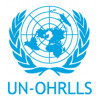The Office of the Special Representative of the Secretary-General on Sexual Violence in Conflict (SRSG-SVC) serves as the United Nations’ spokesperson and political advocate on conflict-related sexual violence, and is the chair of the network UN Action against Sexual Violence in Conflict.
The Office was established by Security Council resolution 1888 (2009), one in a series of resolutions which recognized the detrimental impact that sexual violence in conflict has on communities, and acknowledged that this crime undermines efforts at peace and security and rebuilding once a conflict has ended. These resolutions signal a change in the way the international community views and deals with conflict-related sexual violence. It is no longer seen as an inevitable by-product of war, but rather a crime that is preventable and punishable under international human rights law.
In April 2010, the first Special Representative, Margot Wallström of Sweden, established the Office and served as the United Nations’ spokesperson and political advocate on this issue. She outlined five priorities for the mandate.
In September 2012, Zainab Hawa Bangura of Sierra Leone took over as the Special Representative of the Secretary-General on Sexual Violence in Conflict and added an additional priority.
In April 2017, the United Nations Secretary-General António Guterres appointed Pramila Patten of Mauritius as his Special Representative on Sexual Violence in Conflict at the level of Under‑Secretary-General.
The three priorities of the Office are:
The 2017 Report of the Secretary-General on Conflict-Related Sexual Violence covers the following countries: Afghanistan, Bosnia and Herzegovina; Burundi; Central African Republic (CAR); Colombia; Cote d’Ivoire; Democratic Republic of the Congo (DRC); Iraq; Libya; Mali; Myanmar; Nepal; Nigeria; Somalia; South Sudan; Sri Lanka, Sudan (Darfur), Syrian Arab Republic, and Yemen.


